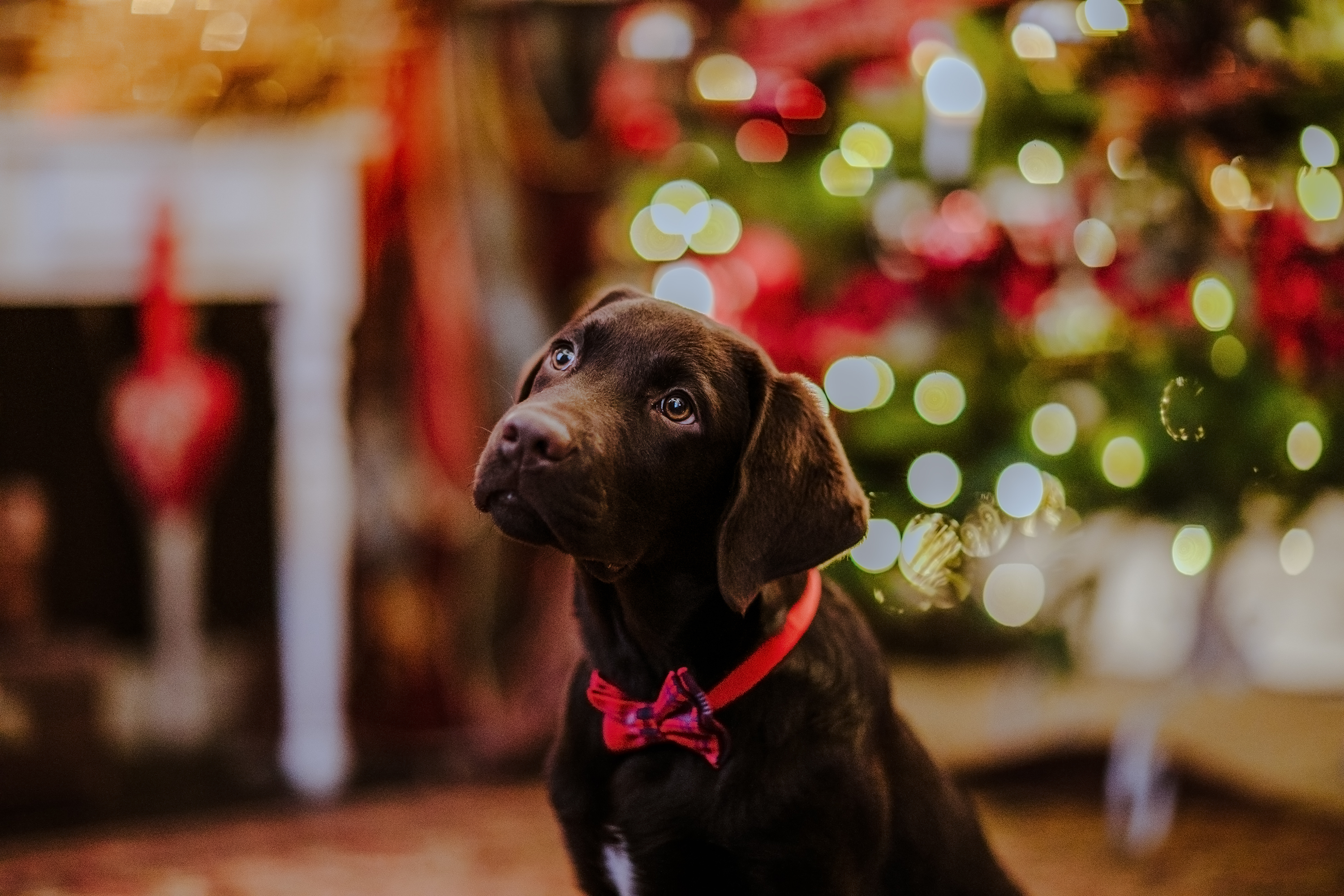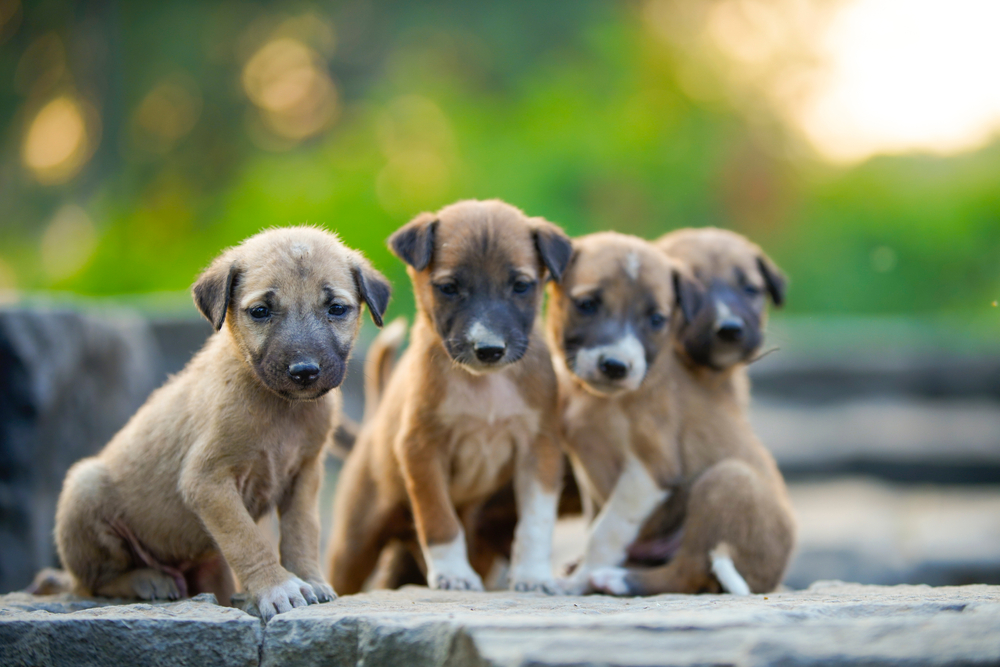Should I research breeders before buying a dog?
Most definitely, yes. Taking the time to research a potentially great breeder that responsibly breeds healthy puppies will improve your chances of having a healthy, happy dog that goes on to have a long life.
Why is finding the right breeder important?
Although there are many passionate, genuinely good breeders out there, sadly, there are also people who breed dogs unscrupulously for the sole purpose of making money, at any cost. Such breeders put profits above the health and welfare of their dogs. For this reason, it is recommended that pedigree puppies are only purchased from assured breeders.

Why is a good breeder necessary?
Assured breeders all agree to follow good breeding practices and are inspected by the Kennel Club. They are required to comply with breed-specific health screening, whilst maintaining high standards of welfare. They will also offer unlimited assistance pre-and post-purchase to ensure that your puppy has the very best start in life.
What are the signs of a responsible dog breeder?
A responsible breeder of pedigree pups will be a registered, assured, breeder with the Kennel Club. They will be more than happy to answer questions, and for you to visit the mother of the puppies, along with her litter. Pay attention to how the mother interacts with both her breeder and her pups. She should appear happy and healthy, and free of illness or disease. If the mother appears anxious or aggressive, these tendencies may also be seen in her puppies as they get older. Some exaggerated features, such as skin folds and flat noses can also result in the development of skin and breathing difficulties, for example.
I have found a breeder who comes highly recommended but is not registered with the Kennel Club. Should I consider buying a puppy from them?
This is a tricky one, as even so-called “designer dogs” such as Labradoodles are essentially cross-breeds, meaning that they have the features and genetics of one or more pedigree breeds. It is sensible to check out the genetic test results/health of the original pedigree dogs in the line as this will give you an idea of what to expect in terms of health, character and longevity of your pup. If you decide to go down this route, follow the same rules above in assessing whether the breeder is genuine and breeding for the right reasons. Ask family, friends, breed clubs, or your local vet to see if they have any recommendations of good breeders.
Are dog shelters & dog rescue groups good dog breeders?
As a general rule, dog shelters or rescue groups should not be breeding from rescued dogs, so any that are should be avoided. The only exception to this is if a pregnant dog is taken in, and as a result, has her pups at the shelter - but remember, even if the pup looks like a genuine pedigree pup, there is unlikely to be any paperwork to prove that they are.
Should I visit a dog breeder before getting a dog?
Absolutely! Any genuinely good and responsible breeder will be more than happy to let you into their home for you to meet Mum and her babies in what should be a caring, clean, welcoming environment. Mum should not appear agitated, or in poor health or condition, and the breeder should be keen to show paperwork/ talk you through the characteristics of the pups, any health issues, etc.
What are the classic bad dog breeder red flags?
A breeder who insists on either meeting you outside of where the dog is kept, or insists on delivering the pup to you, or makes excuses for you not being able to meet the mum, should be avoided at all costs - particularly if there are continuous reasons/excuses given. Breeders who are not happy/forthcoming with the answers to your questions, or fail to ask questions of you, are also to be avoided. If the mum and/or pups are not lively, have ribs protruding, have runny eyes/noses/bottoms, are coughing or lethargic, or have skin scores you should most definitely err on the side of caution. As a general rule, if you were not happy to take home the mother of the puppies, then it may not be advisable to buy a puppy from that litter.
A breeder placing multiple adverts for multiple litters of puppies at the same time would also raise alarm bells that they were actually running a “puppy farm”(see below). Such adverts will often be very vague or generic - descriptions are often “borrowed” from other websites.
A puppy should be at least 6 weeks old when it has its first vaccination, although most are 8 weeks of age. If an ad is claiming that pups younger than this have already been vaccinated, it is probably a puppy farmer breeding them.
If a pup advertised has a Pet Passport and is under the age of 12 weeks, it has been imported illegally and there is no guarantee that that puppy will have had any vaccinations or treatment against diseases that are not seen in the UK. The stress of travel will also potentially affect their immunity and hence health.
What won't a responsible dog breeder do?
A responsible breeder will not refuse your request to meet mum and see first-hand the living conditions of the dogs. A responsible breeder wouldn’t refuse or give vague answers to any questions you may have and will allow you to meet all of the litter. Additionally, they will not let pups go to a new home without also checking you out to ensure the pup is going to a good home. They will also not let them go until they have been fully weaned (usually 6-8 weeks of age).

What is the Puppy Contract?
A Puppy Contract demonstrates that a breeder is responsible for setting themselves apart from those whose breeding methods don’t meet the welfare needs of the dogs involved. It contains information on the sire and dam and the specific puppy in question. It also provides a legally binding contract between the breeder and the buyer, giving both sides peace of mind.
Will a good dog breeder use the Puppy Contract?
Simply put, yes, a good breeder will always use a puppy contract.
What is a puppy farmer?
A puppy farmer is a so-called “breeder” who uses multiple dogs which are continuously bred with the resulting puppies being sold. Often the dogs are housed in inadequate environments. They are often confined to very small spaces, and left in filthy conditions with little access to water and sometimes food too. They will not have seen a vet or received preventative health care such as vaccinations and flea and worm treatments.
Inbreeding is also common. This will cause potentially catastrophic health issues. Puppies from these “farms” will not have been properly socialised, and are more likely to develop behavioural problems such as stress and anxiety. Sickly pups are often sold on as healthy ones, and once the mothers are no longer “useful”, they are tragically abandoned.
Why should I avoid puppy farmers?
Puppies from puppy farms are likely to be in poor health and have very little immunity meaning that they are very sickly. This means they will need potentially a lot of costly veterinary treatment. You may also be unable to get them covered by insurance for certain “pre-existing” conditions, meaning that you could well be seriously out of pocket.
Many people recognise that puppy farming is horrendous, so feel compelled to “rescue” one of the pups, but you are far better to walk away and report them to the RSPCA, report the ad, and call the police if you see animal cruelty.
FAQs about dog breeders
Should I wait to find the right dog breeder?
The more research you can do, the better. According to The Kennel Club, almost 15% of pups purchased in 20 minutes or less by their owners will experience illness, ongoing veterinary treatment, or death in the first six months - three times higher than the rate of puppies chosen with more time.
Is it safe to buy a dog online?
Yes, it can be but do your research! Take on board all of the advice and information above, and if you have any niggling doubts - always investigate the area of concern thoroughly before agreeing to the purchase.
What is Lucy’s Law?
Lucy’s Law is legislation brought into effect in April 2020 to tackle the low-welfare, high-volume supply of puppies and kittens by banning their commercial third-party sale in England. This law means that anyone wanting to get a new puppy or kitten in England must now buy directly from a breeder or consider adopting from a rescue centre. If a business buys or sells puppies or kittens without a licence, they could receive an unlimited fine or be sent to prison for 6 months.
The law is named after Lucy, a Cavalier King Charles Spaniel who was rescued from a puppy farm where she was subjected to dreadful conditions. Lucy had many health issues as a result, but she was adopted by a new owner having been liberated by an animal rescue organisation.
Can I speak to a vet before buying a puppy?
If you would like some personalised advice about buying a puppy before you make any decisions then a vet at PocketVet would be more than happy to help. Chat to an online vet at PocketVet today.
Sources
https://www.rspca.org.uk/adviceandwelfare/pets/dogs/puppy/breeder
https://www.uk.pedigree.com/getting-a-dog/preparing-for-a-dog/finding-a-good-dog-breeder
https://www.thekennelclub.org.uk/getting-a-dog/are-you-ready/finding-a-good-breeder/
https://www.four-paws.org.uk/our-stories/publications-guides/how-to-find-a-responsible-breeder
https://gov.uk/government/news/lucys-law-spells-the-beginning-of-the-end-for-puppy-farming